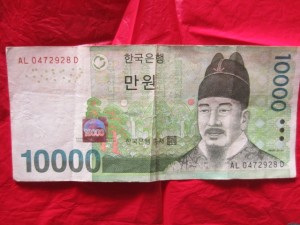A recent article in the New York Times, written by Leta Hong Fincher, focused on China’s Leftover Women (剩女). I thought, what an interesting title to catch the readers’ attention.
At the same time, I remembered the derogatory term Christmas Cake used for unmarried women in Japan. In the early 90s, an unmarried Japanese woman was referred to as such. Back then, I was in my early 30s and independent, and I needed clarification for this term. I was told a woman over 25 is not desirable for marriage, just like a day-old Christmas Cake. Ah so desuka.
I was hoping this outlook would improve for Asian women (in general), but it seems China is still holding on to its very traditional perception of female roles in society.
During my first reading of the above article (link below), I kept just shaking my head in disbelief in what the author shared in her writing. During my second reading – one just for good measure – I started smiling, and yes, sometimes even laughed out loud.
Quoting one part from the website of the Women’s Federation *:
Pretty girls don’t need a lot of education to marry into a rich and powerful family, but girls with an average or ugly appearance will find it difficult. These kinds of girls hope to further their education in order to increase their competitiveness. The tragedy is, they don’t realize that as women age, they are worth less and less, so by the time they get their M.A. or Ph.D., they are already old, like yellowed pearls.
Quoting Ms. Fincher’s words:
* In 2007, the Women’s Federation defined “leftover” women (sheng nu) as unmarried women over the age of 27 and China’s Ministry of Education added the term to its official lexicon. Since then, the Women’s Federation Web site has run articles stigmatizing educated women who are still single.
– end of quote –
I guess they see the age of 28 and above like an overly ripe commodity which is no longer wanted on the market. On the other hand, I wonder who makes up this Women’s Federation. Women themselves? I doubt it. Unless these are pretty women who have been employed by this Women’s Federation to write what they have been told by powerful old men.
See for yourself what else Ms. Fincher has to share with us in her post China’s “Leftover” Women.
Be prepared for a good reminder how different our values are. Sad to say, this stigma has also increased the suicide rate among young women, the ones who fear the sheng nu status.
Another reason for China in strongly encouraging women to consider early marriage is the current statistics for university graduates. Close to 52% of all graduates are female, and hence, the Chinese government might worry about its male-dominated employment situation.
Where once bound feet was a mark of beauty, being a prerequisite for finding a husband, as well as a way to marry into money, the current China seems to put a tight wrap on women’s education. When young women are being discouraged from higher education and careers, in order to find a husband at a young age, then we are looking at some dark times again.




